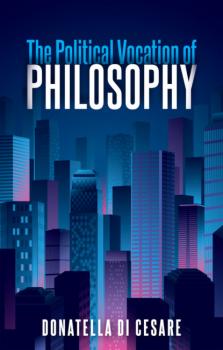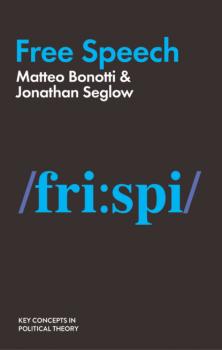ТОП просматриваемых книг сайта:















Афоризмы и цитаты
Различные книги в жанре Афоризмы и цитаты, доступные для чтения и скачиванияАннотация
Die größte Kostbarkeit – festgemacht an der Verhältnismäßigkeit Die Kostbarkeit der Existenz ist seit jeher dem Bewußtsein der Menschen gewärtig gewesen, leider ohne daß dieses Bewußtsein die Wirklichkeit des Daseins entscheidend geprägt hat. Jetzt ist die Menschheit allerdings an einem Punkt angekommen, an dem dieses Bewußtsein allein nicht mehr ausreicht, indem es durch den Klimawandel unerläßlich geworden ist, das Dasein diesem entsprechend zu gestalten. Hierzu reicht die punktuelle Einsicht in die Kostbsarkeit von Existenz und Leben nicht aus, das Bewußtsein dieser Kostbarkeit muß ein Allgemeines sein, um sich auf die Gestaltung des irdischen Daseins auswirken zu können. Zu solchem Bewußtseinswandel möchte das Buch einen Beitrag leisten.
Аннотация
As people throughout the world react to globalization and revert to nationalism, they are proclaiming distinct cultural identities for themselves. Cultural identity seems to offer a defensive wall against the homogenizing effects of globalization and a framework for nurturing and protecting cultural differences. In this short and provocative book, François Jullien argues that this emphasis on cultural identity is a mistake. Cultures exist in relation to one another and they are constantly mutating and transforming themselves. There is no cultural identity, there are only what Jullien calls ‘resources’. Resources are created in a certain space, they are available to all and belong to no one. They are not exclusive, like the values to which we proclaim loyalty; instead, we deploy them or not, activate them or let them fall by the wayside, and each of us as individuals is responsible for these choices. This conceptual shift requires us to redefine three key terms – the universal, the uniform and the common. Equipped with these concepts, we can rethink the dialogue between cultures in a way that avoids what Jullien sees as the false debate about identity and difference. This powerful critique of the modern shibboleth of cultural identity will appeal to anyone interested in the great social and political questions of our time.
Аннотация
Leo Strauss’s lifelong intellectual mission was to recover ‘classical rationalism’, a pursuit that has made him a controversial figure to this day. While his critics see him as responsible for a troubling anti-democratic strain in modern politics, others argue that his thought is in fact the best defence of responsible democracy. Neil Robertson’s new introduction to Strauss aims to transcend these divides and present a non-partisan account of his thought. He shows how Strauss’ intellectual formation in Weimar Germany and flight from Nazism led him to develop a critique of modernity that tended to support a conservative politics, while embracing a radical sense of what philosophy is and can be. He examines the way in which Strauss built upon the thought of Nietzsche and Heidegger in order to show how their 'nihilism' led not to a standpoint beyond western rationality, but to a recovery of its roots. This skillful reconstruction of the coherence and unity of Strauss’ thought is the essential guide for anyone wishing to fully grasp the contribution of one of the most contentious and intriguing figures in 20th century intellectual history.
Аннотация
It is time for philosophy to return to the city. In today’s crisis-ridden world of globalised capitalism, increasingly closed in on itself, it may seem harder than ever to think of ways out. Philosophy runs the risk of becoming the handmaiden of science and of a hollowed-out democracy. Donatella Di Cesare calls on philosophy instead to return to the political fray and to the city, the global pólis , from which it was banished after the death of Socrates. Suggesting a radical existentialism and a new anarchism, Di Cesare shows that Western philosophy has been characterised by a political vocation ever since its origins in ancient Greece, and argues that the separation of philosophy from its political roots robs it of its most valuable and enlightening potential. But critique and dissent are no longer enough. Mindful of a defeated exile and an inner emigration, philosophers should return to politics and forge an alliance with the poor and the downtrodden. This passionate defence of the political relevance of philosophy and its radical potential in our globalised world will be of great interest to students and scholars of philosophy and to a wide general readership.
Аннотация
Freedom of speech is never very far away from political controversy. In recent years, the rise of populism, the ‘cancel culture’ phenomenon, and online hate attacks are among the developments that have kept it at the forefront of both public and academic discussion. In this new introduction to the subject, Matteo Bonotti and Jonathan Seglow offer an accessible analysis of debates around freedom of speech. They introduce and critically examine three major philosophical arguments for freedom of speech that are based on the values of truth, autonomy, and democracy. They apply these arguments to issues including hate speech, offensive speech, and pornography, and also tackle pressing current issues such as ‘fake news’ and public shaming. This book will be essential for anyone wishing to understand the contemporary significance and philosophical roots of free speech, and how it relates to debates about democracy, feminism and multiculturalism.
Аннотация
Hans Kelsen erörtert In seinem kleinen, aber gewichtigen Aufsatz von 1953 die Frage nach Gerechtigkeit als Problem der Lösung von Interessen- und Wertkonflikten und als Problem der Rechtfertigung menschlichen Verhaltens: Absolute Gerechtigkeit, so Kelsen, kann es nicht geben, relative Gerechtigkeit aber führt immerhin zu Toleranz. Angesichts der Herausforderungen durch die Flüchtlingsströme der Gegenwart gewinnt diese Fragestellung über ihre grundsätzliche Bedeutung hinaus besondere Aktualität und Brisanz.
Аннотация
The Memoirs of General Ulysses Simpson Grant, Part 1
libreka classics – These are classics of literary history, reissued and made available to a wide audience. Immerse yourself in well-known and popular titles!
libreka classics – These are classics of literary history, reissued and made available to a wide audience. Immerse yourself in well-known and popular titles!
Аннотация
Baron D'Holbach : a Study of Eighteenth Century Radicalism in France by Max Pearson Cushing
libreka classics – These are classics of literary history, reissued and made available to a wide audience. Immerse yourself in well-known and popular titles!
libreka classics – These are classics of literary history, reissued and made available to a wide audience. Immerse yourself in well-known and popular titles!
Аннотация
An Enquiry Concerning the Principles of Morals by David Hume
libreka classics – These are classics of literary history, reissued and made available to a wide audience. Immerse yourself in well-known and popular titles!
libreka classics – These are classics of literary history, reissued and made available to a wide audience. Immerse yourself in well-known and popular titles!
Аннотация
It was not until 1961 that Foucault published his first major book, History of Madness . He had already been working as an academic for a decade, teaching in Lille and Paris, writing, organizing cultural programmes and lecturing in Uppsala, Warsaw and Hamburg. Although he published little in this period, Foucault wrote much more, some of which has been preserved and only recently become available to researchers. Drawing on archives in France, Germany, Switzerland, Sweden and the USA, this is the most detailed study yet of Foucault’s early career. It recounts his debt to teachers including Louis Althusser, Jean Hyppolite, Maurice Merleau-Ponty and Jean Wahl; his diploma thesis on Hegel; and his early teaching career. It explores his initial encounters with Georges Canguilhem, Jacques Lacan, and Georges Dumézil, and analyses his sustained reading of Friedrich Nietzsche, Edmund Husserl and Martin Heidegger. Also included are detailed discussions of his translations of Ludwig Binswanger, Victor von Weizsäcker, and Immanuel Kant; his clinical work with Georges and Jacqueline Verdeaux; and his cultural work outside of France. Investigating how Foucault came to write History of Madness , Stuart Elden shows this great thinker’s deep engagement with phenomenology, anthropology and psychology. An outstanding, meticulous work of intellectual history, The Early Foucault sheds new light on the formation of a major twentieth-century figure.










